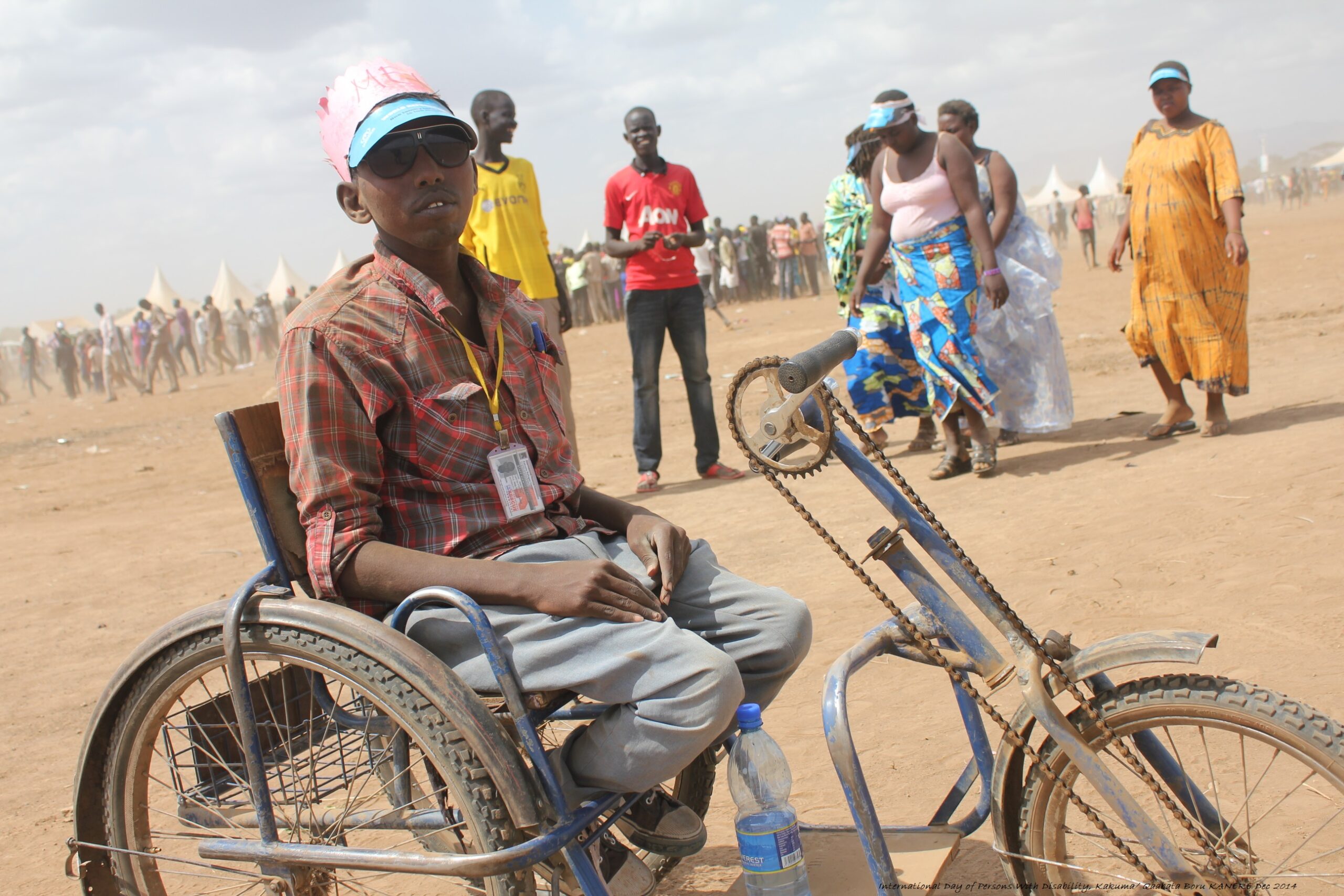A refugee child died in an aggressive road accident in Kakuma
Tag: South Sudanese
Signing of peace deal
By Qaabata Boru – qaabata007@yahoo.com
South Sudan gained independence from Sudan in 2011 after decades of warfare and yet the state has failed to manage its own administration in accordance with the rule of law. A series of violent outbreaks based on ethnic cleansing have been organized since December 2013.
Fighting erupted in Kakuma Refugee Camp killing at least 20 people and injuring hundreds.
In Kakuma refugee camp the International Day of Persons Living with Disability is observed, falling within the 16 Days of Activism against Gender-based Violence.
Kakuma Refugee Camp hosts hundreds of refugees with disabilities, the largest number being visual impairment, hearing difficulties and physical disability.

A Turkana man who stabbed a refugee child to death was killed in mob justice
Letter from the Editor
To all Kanere readers and supporters,
It is only now that we have finally gotten the 14th issue of KANERE online but don’t worry “a bad beginning makes a good ending”. This is a double issue of Kanere, thanks to our reporters and other contributors to the publication.
We intend to produce KANERE in a quarterly edition but that would entirely depend on the efforts of Kanere staff, feasibility and the climate of media freedom within the Kakuma environs. However, we would want to move Kanere onto the next level by producing a print version to reach out to most vulnerable members of the refugee community who could not be able to read Kanere online. It would cost a lot for now but when amicable funds are made available, we intend to produce more than a thousand copies per issue.
In this edition, I welcome an academic feature contribution by Mandy Jam, a Dutch graduate student in cultural anthropology, based at Leiden University, the Netherlands. Mandy conducted her ethnographic research for MA that focuses on refugees’ perceptions and other competing discourses on the mode of governmentality within the camp, while considering the desperate situation of refugee adults who are born in Kenya camps – but have no right to citizenship.
Secondly, we take this opportunity to welcome a “Refugee Newsletter” produced and managed by an NGO in Kakuma. The new twist is sponsored and edited by FilmAid that works under the umbrella of UNHCR. While Kanere is run and entirely operated by refugee exile journalists completely independent of humanitarian control.
In this edition, we have compiled multiple stories for you; despite the fact that Kakuma has always been marked by insecurity and violence, the camp was relatively calm for several months. However, in late May there were incidents of clashes between the Sudanese Nuer community and members of Turkana’s host community.
In the Lokori area in Turkana, banditry has been frequent and has claimed at least three lives between 17th – 27th April when an unknown number of raiders armed with AK47 rifles attacked a group of Turkana women who had gone to fetch water and firewood, while in a separate incident, around 30 bandits attacked a Public Service Vehicle, setting it ablaze while the passengers escaped unhurt according to G4S April monthly report.
At Kanere News, the unfavorable climate of press freedom in Kakuma has resulted in a few journalists leaving on insecurity cases while a few reporters stepped aside from voluntary contributing to Kanere as they lacked support from the camp authority.
In December 2012, the government passed a negative directive to force urban refugees into camps, which later escalated to a dramatic increase in attacks. In January, the Kenyan High Court ordered the authorities to suspend the refugee relocation plans according to which more than 50,000 refugees and asylum seekers are supposed to leave urban areas of Kenya, but by the middle of May the court had not yet made a ruling on the negative decision.
However, in May, at least 45 refugees traveling to Nairobi were arrested on their way and arraigned at Eldoret court and charged with being illegal migrants, while at least six people died in the April – May floods in Kakuma.
And still the UNHCR Head of Sub-Office continues to receive the influx of new arrivals, the majority being South Sudanese. In the annual event of World Refugee Day, tens and thousands turned out to mark the historic event at Napata grounds in the camp. There are several other interesting stories that constitute this publication.
On our social media, we bring up news and events around the camp and Kakuma town with Kanere reporters in different sections of Kakuma; we bring up debatable issues. Tell us about your experiences, thoughts, let us read the latest and reality reporting on the unfolding happening inside a refugee camp.
Kanere would like to receive contributions from both the host and refugee communities and the NGOs’ staff, as we welcome diversity of culture in these multinational interactions. We truly believe that journalism should be strengthened, but not undermined, looking at the current status of journalism practiced in Kakuma. With no doubts you’ll find the difference between KANERE (a refugee-run) and an NGO-run newsletter!
We’re open to suggestions and debate on refugee affairs. In this true spirit of independent refugee media inside the camp, we will need your support to grow and develop! Share your experiences with us, pitch in news tips and send us feedback on our stories and concerns to, kakuma.news@gmail.com
Anyone can get involved in supporting and towards strengthening development of Kanere. Keep spreading the message in your networks, and you may ‘like’ Kanere on our social media page. I hope you’ll enjoy reading our issues.
Till next edition!
Signed,
Qaabata Boru
Editorial Executive
